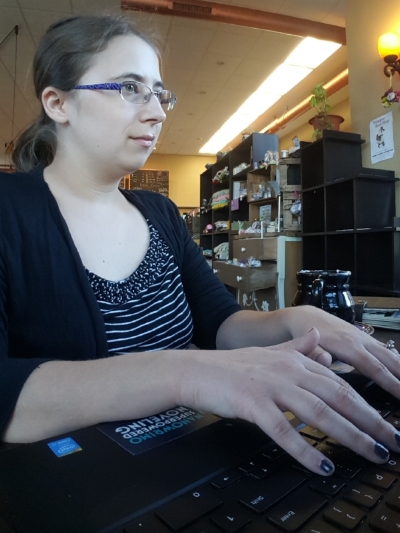Are you a creative writer who dreams of making a living by writing professionally? And I don’t mean as an author -- I mean writing content for an actual job position. Is it as amazing as it sounds to spend your entire day writing at your job, then going home to work on your novel?
Well, not exactly.
Professional Writing
Pretty much everyone assumed that when I said I was pursuing an English degree that I was going to work as a teacher. Absolutely not. Teachers do amazing work, and I actually used to write about education frequently at my old job. But I wouldn’t want to be one.
There are a lot of jobs you can do with an English degree, but if you want to work with words you’re most likely to end up in marketing/communications. That’s what I do.
My first job out of college was as a Copywriter, and I pretty much did it all. I wrote copy for blogs, advertisements, social media, websites… you name it, I was the one writing it. I’m working as a Communications Manager now, and while the job is still primarily writing, it’s more focused on email marketing and magazine publication. But both jobs involve a lot of writing.
But It’s More Than Writing
When you work as a professional writer, you aren’t just sitting at your desk typing all day. To create content, there’s a lot of things you have to do before and after the writing process.
Researching information for the content you’re writing
Interviewing others to enhance your content
Writing content according to brand guidelines
Utilizing keywords in your copy
Meeting requirements such as word/character count
Fact checking names, dates, and pretty much everything else
Getting approval on copy you’ve written
Working with graphic designers to solidify layouts, photos, & more
Tracking analytics to determine how effective your copy is
Researching marketing trends and tools to stay up-to-date
I spend the majority of my time writing, but there’s also a lot of hours that go into all that other stuff. If that doesn’t appeal to you, you’re not going to enjoy a career in professional writing.
Professional Writing Topics
But hey, at least you’re writing for a living, right? That has to be more interesting than most other jobs out there. Here’s an example of the type of topics I’ve written content about in my professional career:
Digital Signage
School Supplies/School Furniture
Cardboard Boxes
Mailboxes
Postal Uniforms
Bubble Wrap
Arts & Crafts Instructions
Product Descriptions (thousands and thousands of them)
Trends in Education
Marketing
Corkboards
That’s just a sampling. As you can see, there’s some really cool topics in there. Digital signage, marketing, educational trends-- that can all make for some exciting content. But what about corkboards and boxes? How boring are these things to write about?
Part of your job as a professional writer is to make these seemingly dull topics interesting. That can be a challenge, and for me it’s a rewarding challenge. If that doesn’t sound very rewarding to you, writing professional copy may not be for you.
Why Creative Writing Is So Great
I doubt I have to list the benefits of creative writing to you, but I will for the sake of argument:
Ability to write whatever you want without rules
Create brand new worlds
Make characters do whatever you want
Do research on topics that interest you
Share your story with others
But creative writing is still a lot of work, just in different ways. If you’re serious about becoming a published author, you have to worry about marketing. You need to understand the publishing process. You have to do a lot of intense editing work, like I’m doing now, and you have to think about scene structure, dialogue choices, and hundreds of other little things. Sadly, creative writing isn’t always fun. Most things aren’t.
Do I Enjoy Writing Professionally?
I love it. There’s no job I would rather be doing. But if you’re only interested in the creativity of writing and only want to write what interests you, you may want to go into another field of professional work.
I still can’t believe that my job is to write for a living. There’s a lot of other things involved in it, sure, but at the end of the day my job is to write. It’s challenging, extremely gratifying work, but it isn’t for everyone, even if you love writing.
How does professional writing sound to you? I’d be happy to answer your questions!

